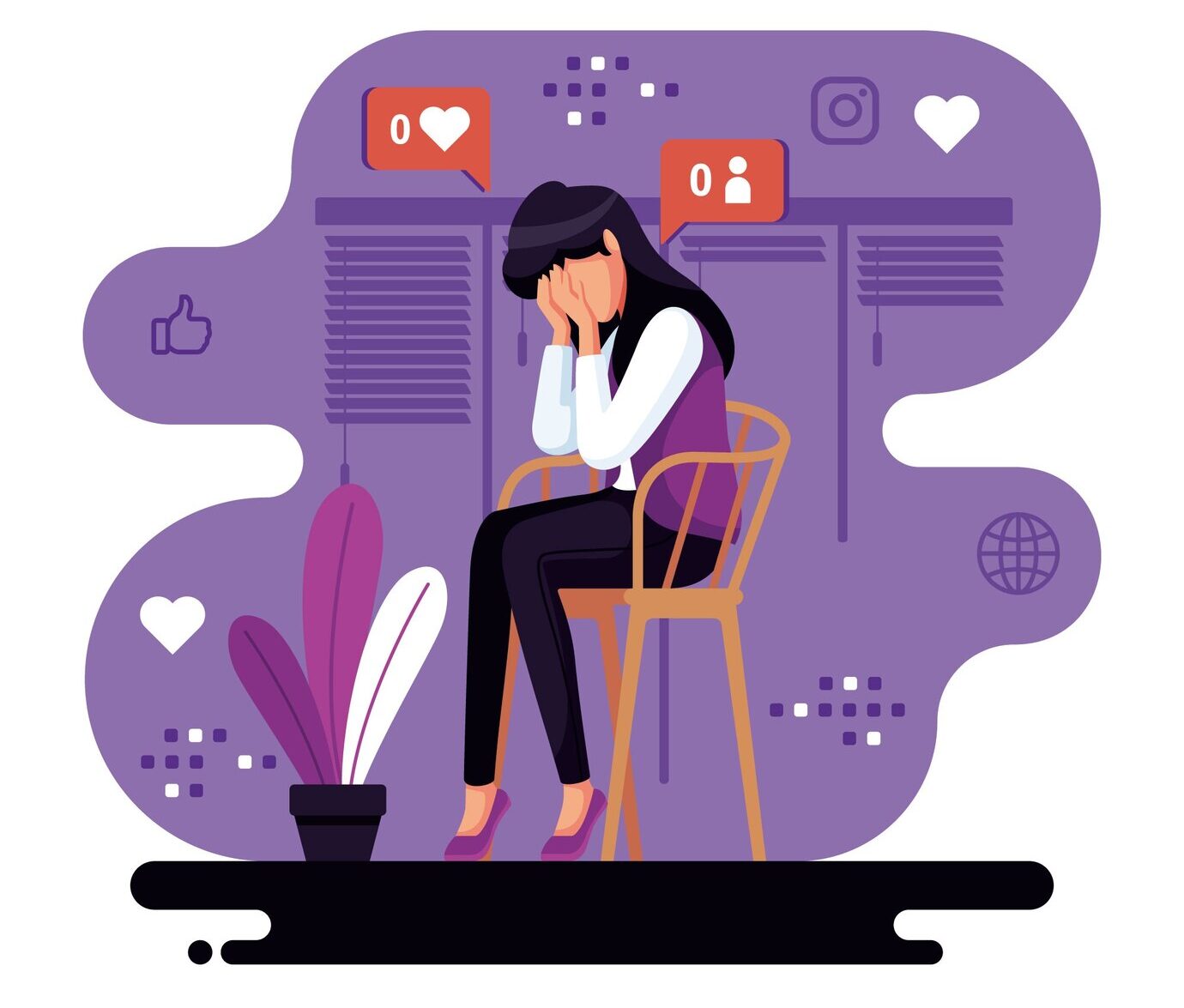In the age of digital connectivity, social media has become an integral part of our lives. While it offers a platform for communication and information sharing, it also brings along challenges, with social media induced anxiety being a prevalent concern. This blog explores the various dimensions of social media-induced anxiety and provides practical strategies to navigate this complex digital landscape.
Understanding Social Media-Induced Anxiety:
Social media-induced anxiety is a psychological response to the use of social media platforms. It can manifest in various forms, such as the fear of missing out (FOMO), constant comparison, cyberbullying, and the pressure to present an idealized version of one’s life.
Strategies for Dealing with Social Media-Induced Anxiety:
- Digital Detox:
Consider taking regular breaks from social media. A digital detox allows you to disconnect, recalibrate, and focus on the present moment. Designate specific times or days when you intentionally log off from social platforms.
- Mindful Consumption:
Be mindful of the content you consume. Unfollow accounts or mute content that triggers negative emotions. Curate your digital space to include content that inspires, educates, and uplifts.
- Set Boundaries:
Establish clear boundaries for social media use. Determine specific time slots for checking social platforms, and avoid engaging in them during critical periods, such as before bedtime.
- Reality Check:
Remind yourself that social media often portrays curated and idealized versions of reality. Understand that people typically share the highlights of their lives, and not the full spectrum of experiences.
- Focus on Real Connections:
Prioritize face-to-face interactions and build meaningful connections offline. Strengthening real-world relationships can provide a sense of belonging that social media interactions may not fulfill.
- Practice Self-Compassion:
Be kind to yourself. Understand that everyone has insecurities, and social media often amplifies them. Practice self-compassion by acknowledging your feelings without judgment.
- Limit Notifications:
Adjust your notification settings to reduce interruptions. Limiting notifications can help you control when and how often you engage with social media, reducing the likelihood of anxiety triggers.
- Educate Yourself:
Understand the algorithms and mechanisms behind social media platforms. Being informed about how content is presented and promoted can empower you to navigate these spaces more consciously.
- Seek Support:
If social media-induced anxiety becomes overwhelming, seek support from friends, family, or mental health professionals. Discussing your concerns with others can provide valuable perspectives and coping strategies.
- Engage in Offline Hobbies:
Cultivate hobbies and activities that do not involve screens. Engaging in offline pursuits can offer a refreshing break and contribute to a more balanced lifestyle.
- Mindfulness and Meditation:
Incorporate mindfulness and meditation practices into your routine. These techniques can help manage stress, anxiety, and promote a sense of inner calm amidst the digital noise.
- Cyber Hygiene:
Practice good cyber hygiene by regularly reviewing your privacy settings, being cautious about the information you share online, and maintaining a healthy skepticism towards digital content.
Conclusion:
Social media-induced anxiety is a genuine concern in our digitally connected world, but with strategic approaches, it can be effectively managed. By adopting a mindful and intentional approach to social media use, setting boundaries, and prioritizing mental well-being, individuals can navigate the digital realm without compromising their mental health. Remember, the key lies in balancing the benefits of social media with a conscious and healthy engagement.


